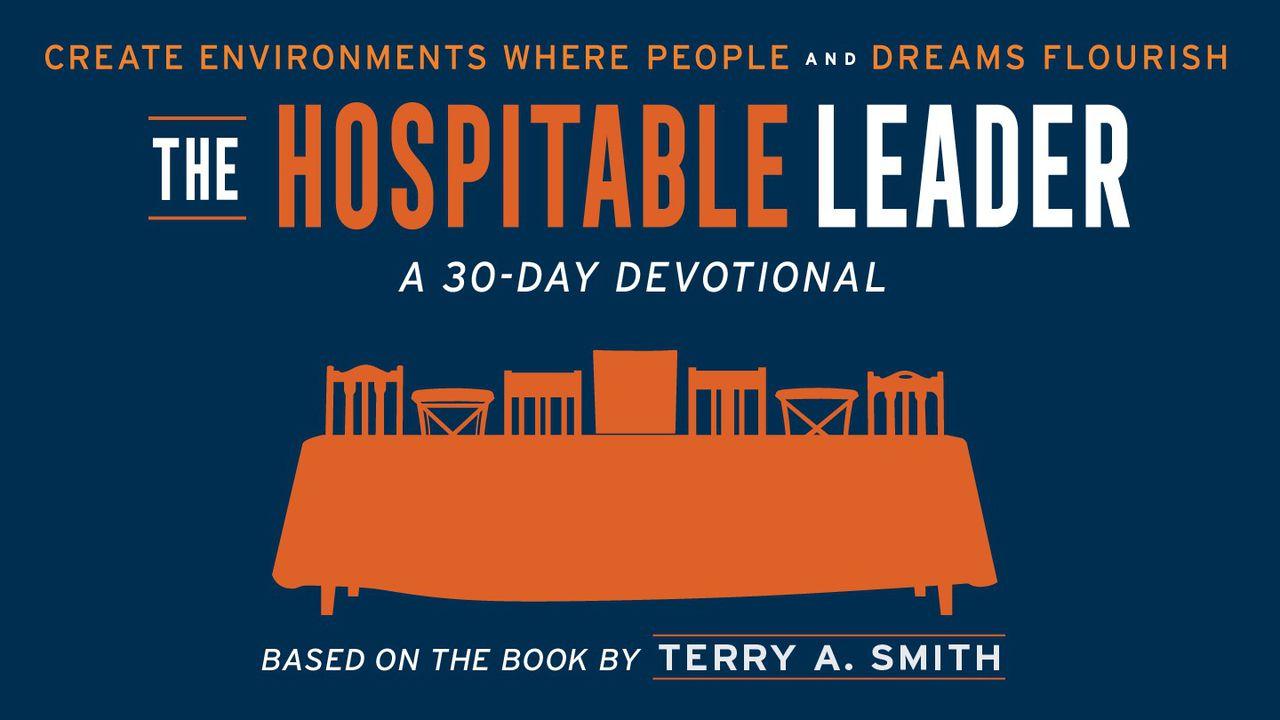The Hospitable Leader DevotionalSample

Though hospitality doesn’t frequently evoke ideas of “radical revolution,” The Hospitable Leader encourages an expanded view of hospitality that isn’t just “niceness,” but a revolutionary catalyst. As most of us would agree, and as the book says, “Our world needs revolutionary change.” Scripture, certainly, lines up with this concept.
In today’s reading, we find one of the most hospitable and the most radical things said in the ancient world as the apostle Paul argues that membership in the family of God diminishes the typical boundaries between people groups. A central component of the first-century worldview was distinguishing factors between groups of people, whether that be based on gender, socioeconomic class, race, or otherwise. For the Jewish culture of that time, which Paul is writing in response to, only those who followed the Jewish practices, or those who were born of Jewish lineage, were allowed into the promise of God. This promise, or covenant, was established with Abraham in Genesis, where God told him (Genesis 12:1–3 ESV), “And I will make of you a great nation, and I will bless you and make your name great, so that you will be a blessing. I will bless those who bless you, and him who dishonors you I will curse, and in you all the families of the earth shall be blessed.” Summarily, there are two major points to this covenant: Abraham’s family will be blessed (the Jews), and God will bless the world through Abraham’s family. This is the foundational covenant behind the entire Old Testament, as God works out his plan for the world through the Jewish people.
Throughout Old Testament Scripture, God shows that he wants the Jewish people to bring non-Jews into the plan of God so that he can bless them. However, the Jews didn’t execute this plan and were largely exclusionary. So God had to do something to bring non-Jews into the blessing, and Jesus was the central figure in that plan. Christ let everyone into the plan; anyone could inherit the blessing of Abraham (which still exists to this day in the people who follow Jesus). This included people who were social outcasts, like the slaves, women, and gentiles. This was perhaps the most hospitable act anyone had ever seen.
Think about it like this: Paul, in Galatians, is saying that now anyone has access to the inheritance of the father; they could be heirs. In that time, only the eldest son was allowed an inheritance, so this concept would have been overwhelmingly hospitable. Not only is the eldest son allowed the inheritance, but anyone else who followed and believed Christ, entering into the covenant, would receive the blessing of God.
This is one of the most extraordinary signs of how hospitality brings radical results. Hospitality isn’t a “soft” concept; it’s a radical concept. By bringing people in who are always left out, or by welcoming those who have never felt welcome, we can instigate a movement that will change an inhospitable world.
Scripture
About this Plan

We live and lead in inhospitable places. Many leaders, hoping to change the world for the better, only add to the darkness. This devotional, based on the principles found in The Hospitable Leader by Terry A. Smith, engages the scriptural idea of becoming a leader that creates hospitable environments where people and dreams flourish. You will learn to lead like Jesus as he revolutionized the world through his hospitable way of welcoming in a diversity of strangers, promoting beauty, speaking truth in love, and much more.
More
Related plans

The Leadership Style of Jesus

Watching for God in the Psalms

How to Deal With Complicated People

Week 1: Being Human in the Age of AI

Learning to De-Escalate

Romans: God's Power to Save | Video Devotional

Messy House, Clean Heart: A 5(ish)-Day Reading Plan From Dana K. White

Week 2: Knowing Truth in the Age of AI

God in the Midst of Depression
